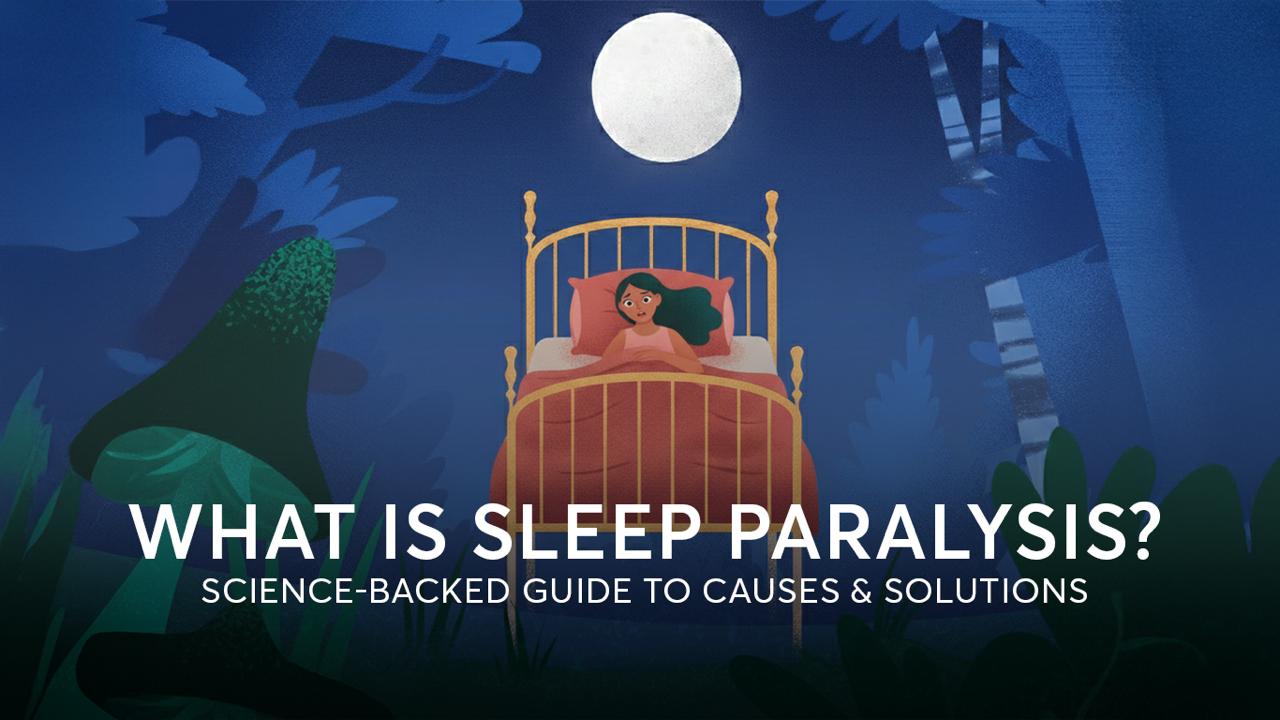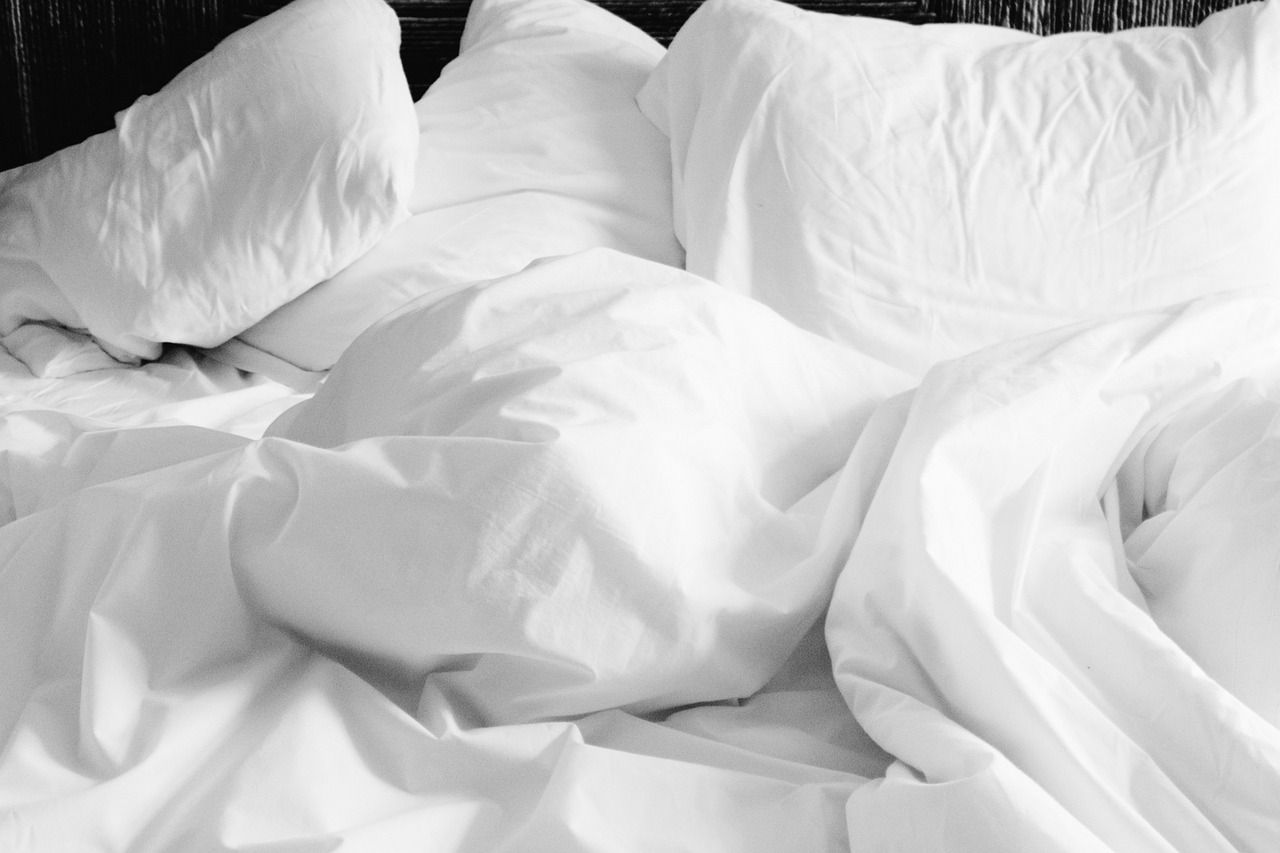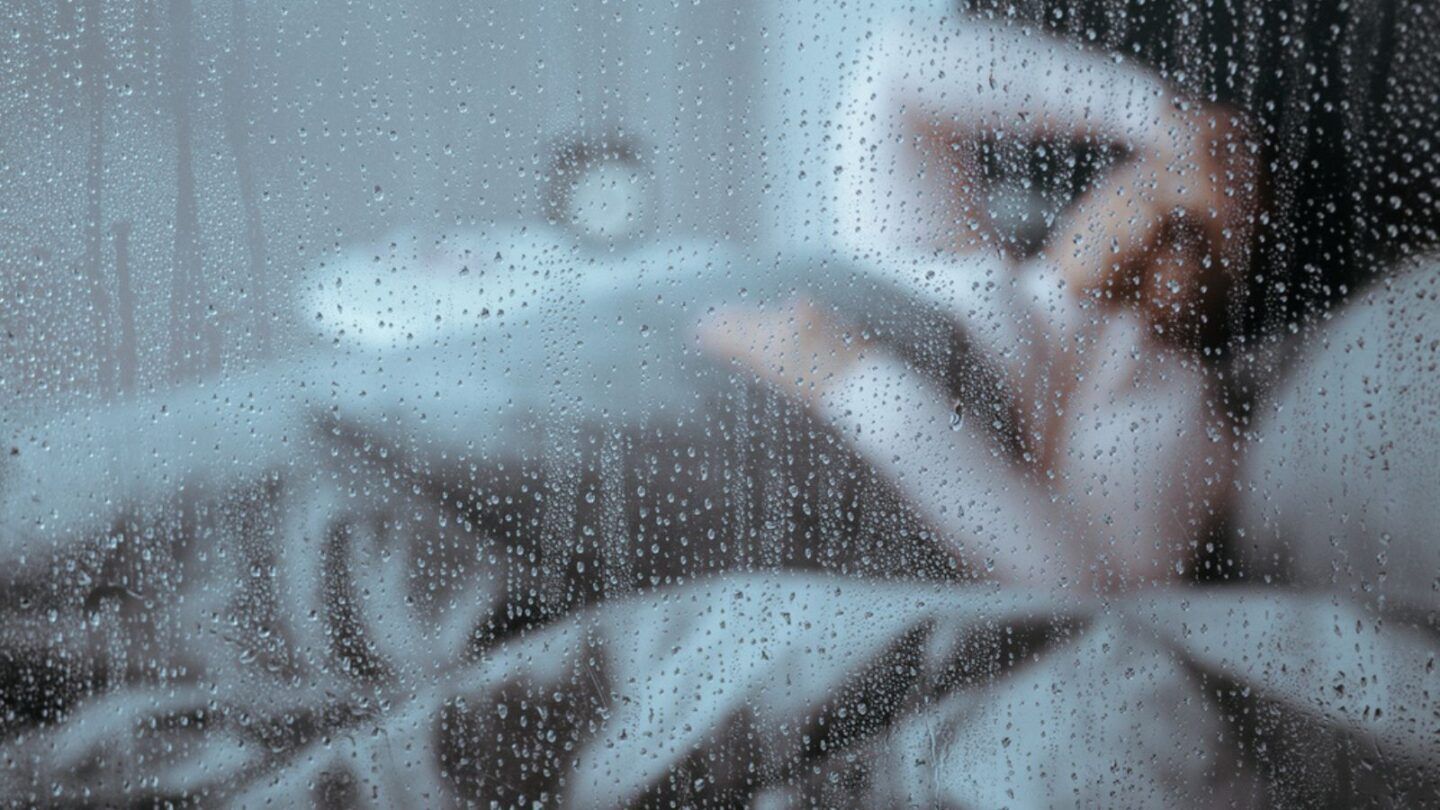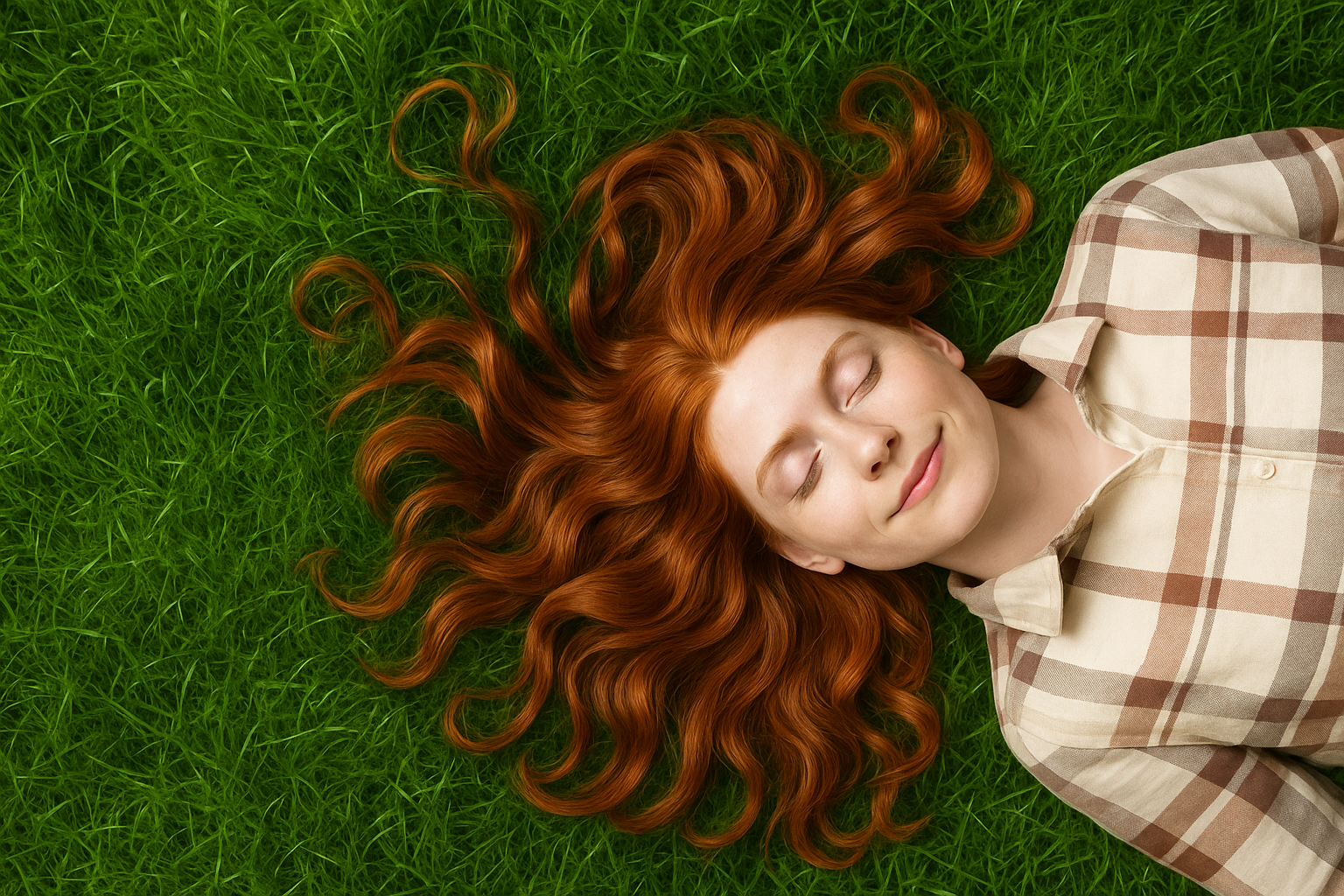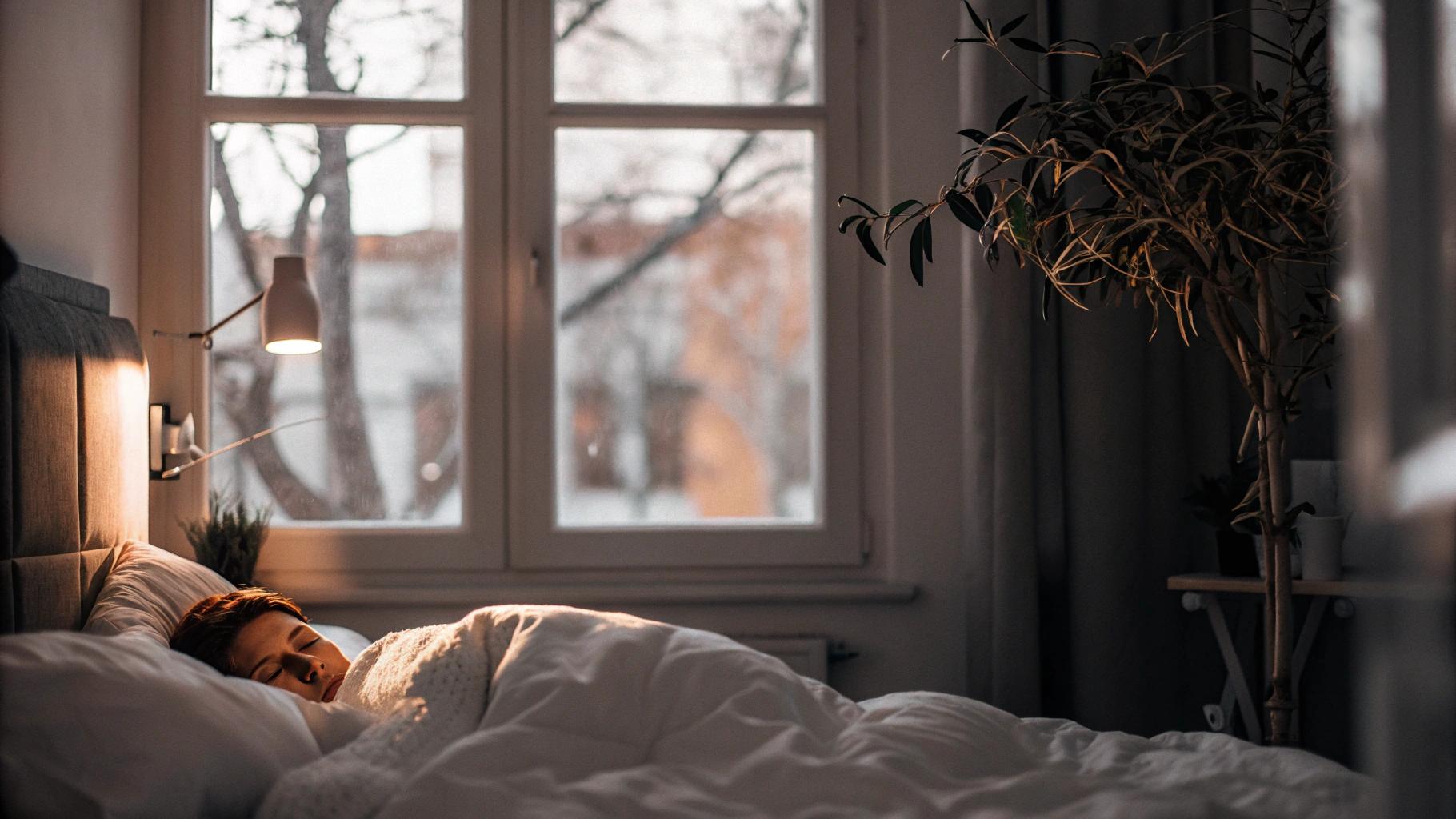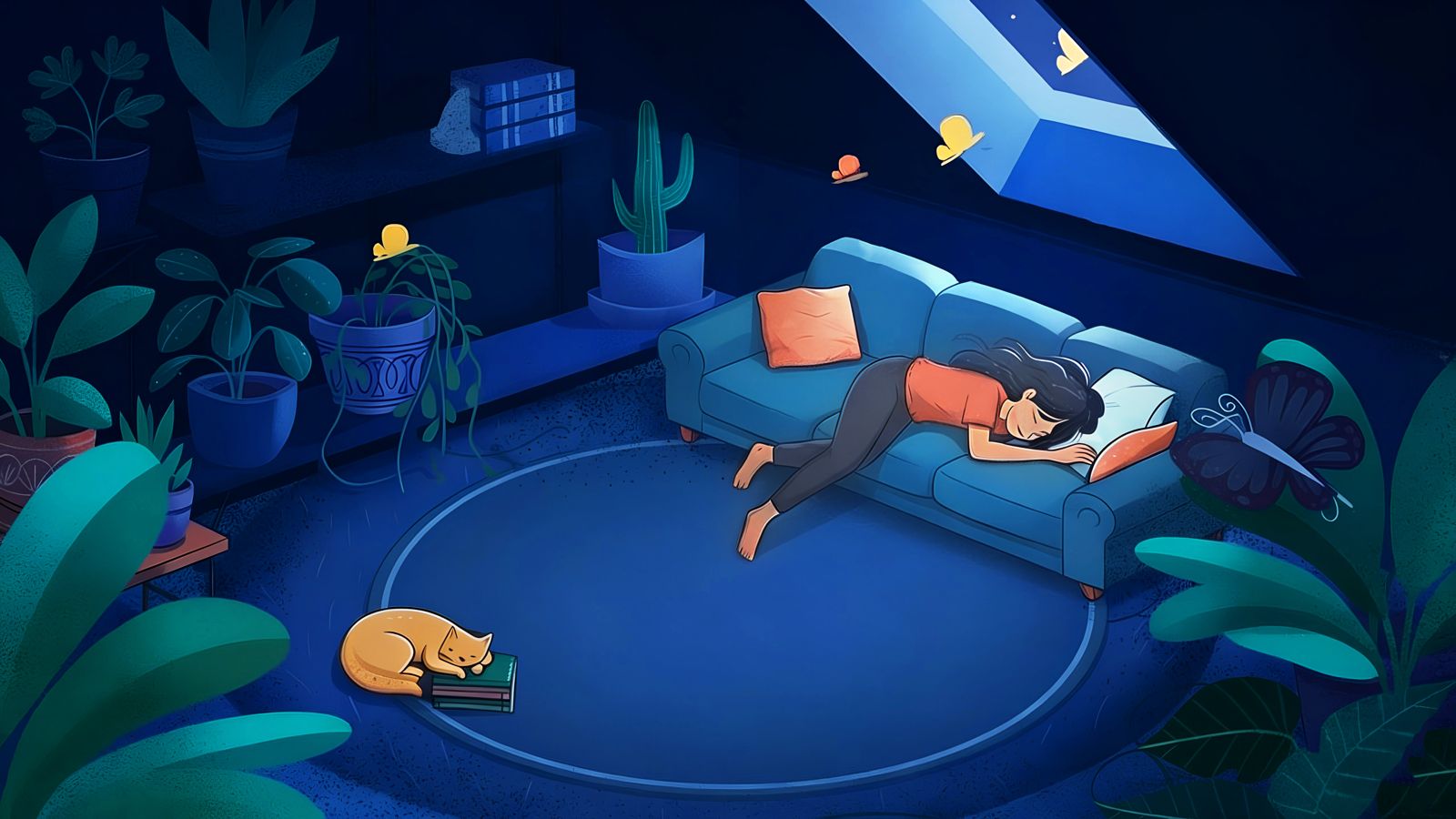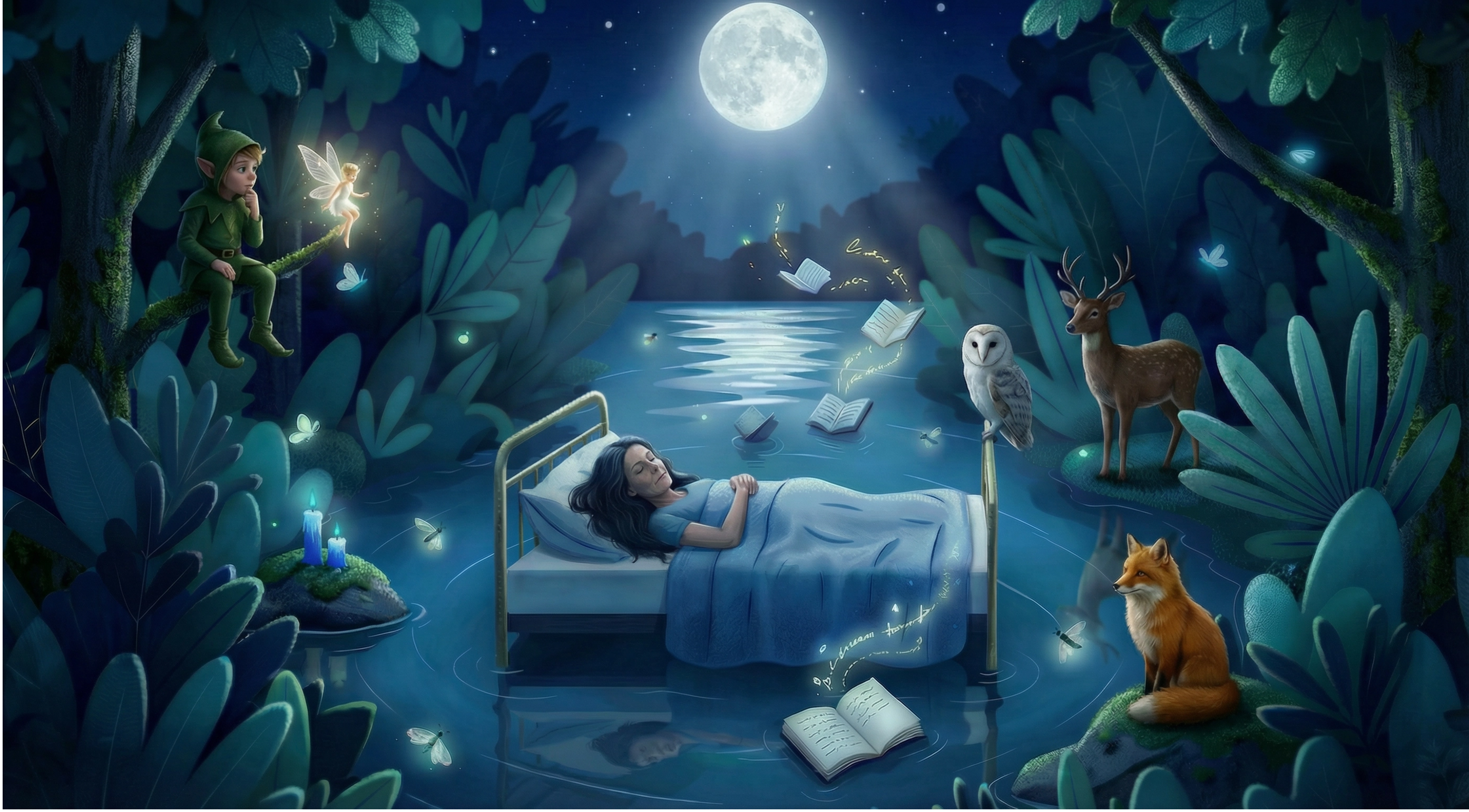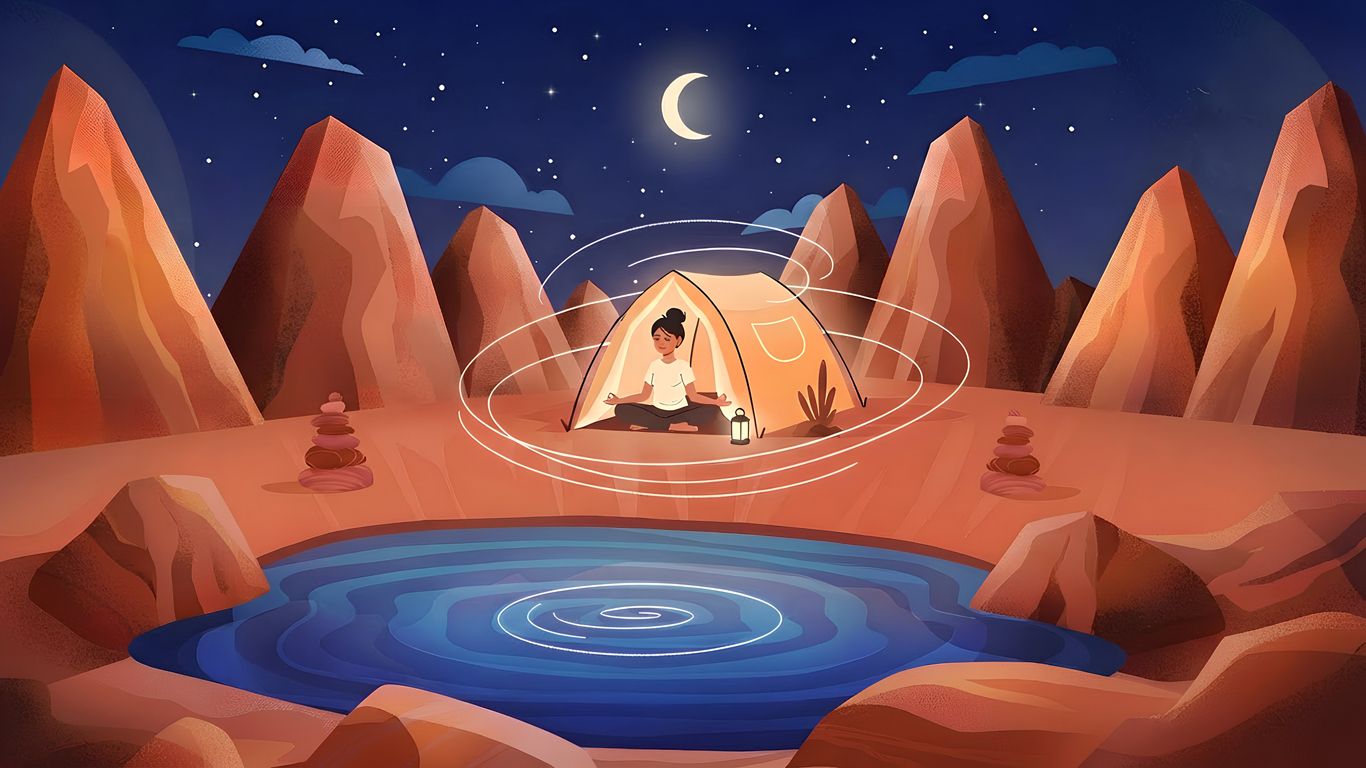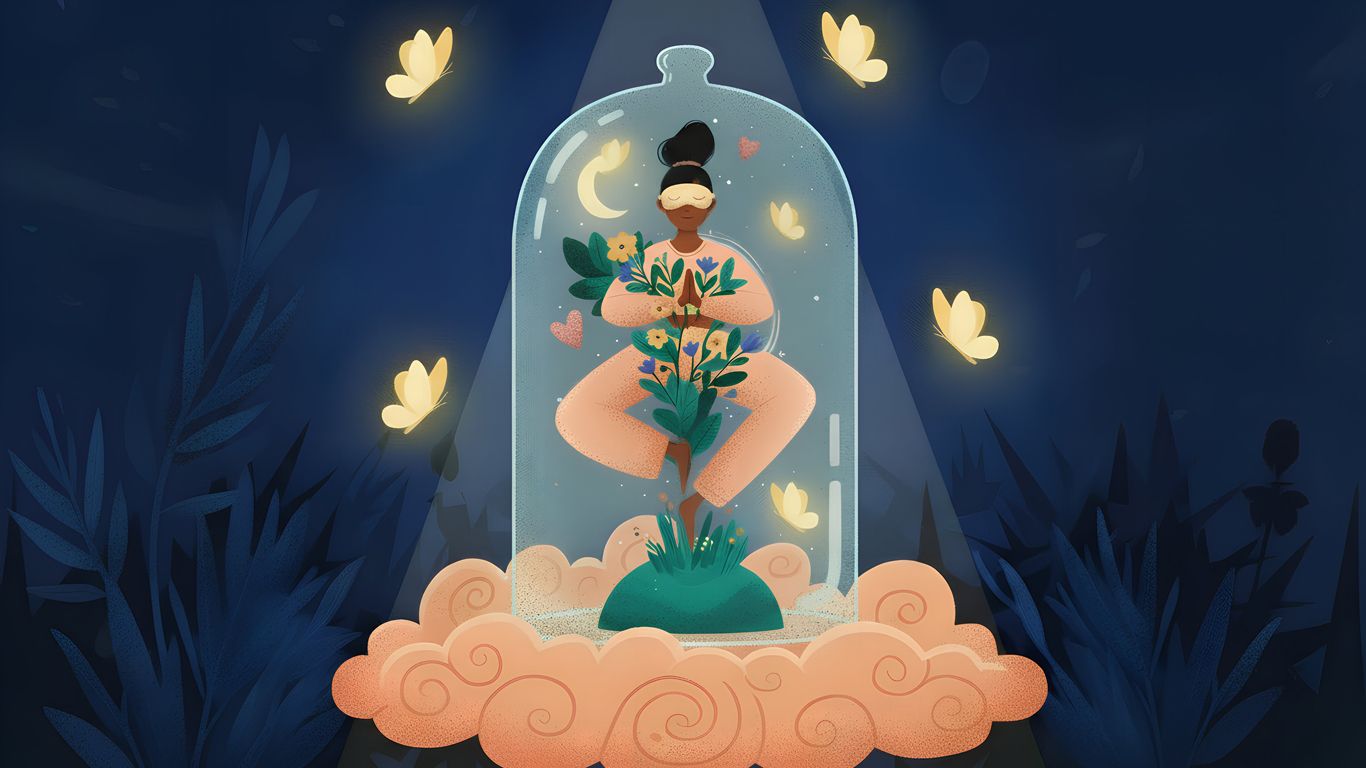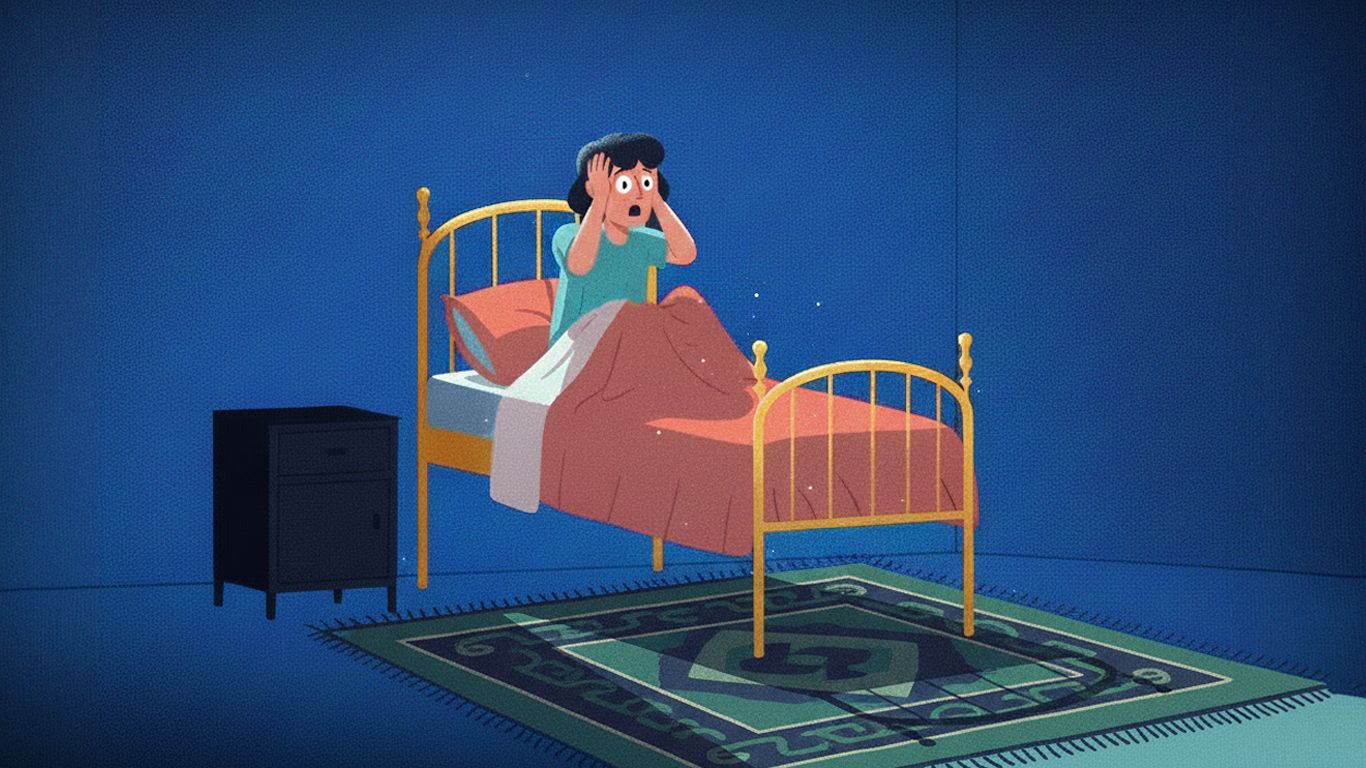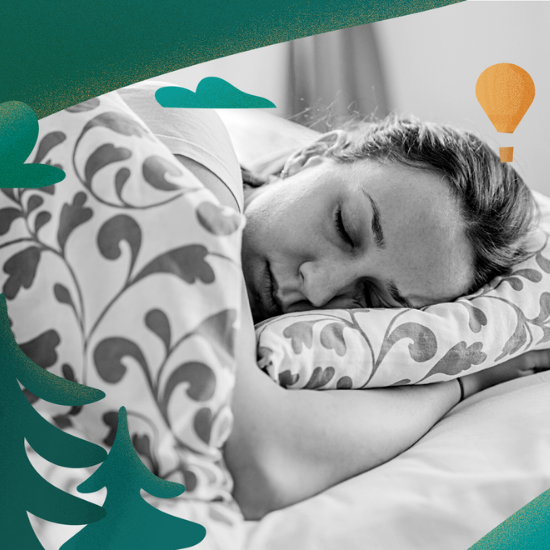
What to Know About Fever Dreams
Have you ever had a dream that felt more intense or vivid than usual and thought, "What just happened?" Well, you may have just experienced a fever dream.
These intense, dramatic, and out-of-the-ordinary dreams usually happen when you have a high fever, hence the name fever dream.
And unlike other dreams, people who experience fever dreams often report feeling upset or shaken when they wake up, which is not something you want from a good night's sleep.
Like most dreams, the science behind fever dreams is still new. But there are some theories about why these fascinating types of dreams happen.
Today we're diving into what a fever dream is, what happens in your brain when you're dreaming and when you're more likely to experience them.
What is a Fever Dream?
To put it simply, fever dreams are the type of dreams one commonly experiences while they have a fever or higher body temperature.
For some people, these dreams can be emotionally intense; for others, they can be quite upsetting.
A studyby professor Michael Schredl at Germany's Central Institute of Mental Health found that 94% of participants who experienced fever dreams said they were negative.
Common Characteristics of a Fever Dream
Though everyone's experiences are unique, there are some common characteristics/feelings people report after a fever dream.
- Dreams are more vivid and intense
- Dreams include imagery of threats/danger, illness, and out-of-the-ordinary surroundings (like walls that melt, abnormally large objects, and more)
- Dreams are usually negatively toned and can cause feelings of discomfort
- Some people find their dreams have more references to health and temperature than regular dreams
- Dreams can include fewer social interactions than other dreams
Why Do Fever Dreams Happen?
Experts believe that we go through four to six sleep cycles each night. This includes alternating between the rem stage of sleep (rapid eye movement) and the NREM stage of sleep (non-rapid eye movement).
We spend about 75% of our time in non-rem sleep, the more peaceful stage. Roughly 25% of our night is spent in the rem sleep stage, where dreams are more likely to occur.
While having a fever, our core body temperature is raised. Scientists believe high core body temperatures affect the brain's ability to think properly, leading to impaired cognitive function and often disturbing dreams.
When Do Fever Dreams Occur?
Fever dreams occur when you're feverish, with a core temperature of over 100.4 degrees Fahrenheit. An average body temperature sits between 97 and 99 degrees.
Fever symptoms can include a stuffy nose, body aches, sweating, chills and shivering, dehydration, loss of appetite, and general weakness.
A fever is your body's response to fighting infection. And while fighting infection, our immune system responds by raising our internal temperature.
Viruses and bacteria thrive at average body temperatures. So, by turning up the heat, temperature-sensitive pathogens find it harder to survive.
This is when you're most likely to experience fever dreams. However, other situations can cause fever dreams.
For instance, if you have a high body temperature because you're wearing too many thick layers in warm weather or spend too much time in the sun, you can experience fever dreams and even hallucinations.
What Happens in a Fever Dream?
Fever dreams are lucid dreams that may involve bizarre narratives and harrowing situations that are emotionally intense. These weird dreams may also reduce the amount of quality sleep you get. Common types of fever dreams include:
Fire or Heat
Fever dreams often include visions of melting objects, heat waves, or forest fires. This is most likely caused by the awareness of your high body temperature.
Stressful Situations
Some people who suffer from fever dreams report re-experiencing childhood nightmares. Other feverish unpleasant dreams include accidents, phobias, violence, or scary health-related situations.
Bizarreness
Fever dreams often contain weirdness, such as creatures with oversized arms, giant insects, aliens, strange environments, and distorted sensory perception.
Recalling More Often Than Normal Dreams
Another common theme with fever dreams is that people report recalling them more easily than regular dreams. This might be because they are extremely vivid dreams that can often interrupt REM sleep.
When you're disturbed during a dream, you're more likely to remember it the next day.


Why Do I Get Fever Dreams When I'm Sick?
Some researchers think that the "overheated" brain can impact cognitive processing - resulting in strange dreams.
Also, fevers/high temperatures have been shown to suppress REM stages of sleep, the type of sleep associated with dreaming.
When REM sleep is disrupted, the nature of people's dreams may also change.
Some researchers have found that "even small increases in body temperature induced by experimentally administered endotoxin can impair cognitive performance and increase depressive mood."
But don't worry, just because you have a fever doesn't mean you'll experience a fever dream. A 2013 study in the Journal of Pain and Symptom Management found that only 11% of people with fevers reported having fever dreams.
Is a Fever Dream Good or Bad?
Fever dreams are not good in the sense that they can often involve intense feelings and negative dream emotions. However, this doesn't mean they're bad for your body.
Because most fever dreams occur during rapid eye movement rem, part of the sleep cycle, when your muscles are temporarily paralyzed, you're unlikely to act out your dreams.
But, because fever dreams are often negative dreams, you may wake up feeling uncomfortable or a little unsettled.
Do Fever Dreams Have a Meaning?
Fever dreams are not thought to have a specific meaning. Although, they may often have a connection to something that's going on in your waking life.
Are Lucid Dreams Similar to Fever Dreams?
Research has shown that during lucid dreams, the dreamer is aware they're asleep and can even control what goes on in the dream.
Lucid dreams also happen during the REM stage of sleep and are thought only to happen a few times a year.
Are Nightmares and Fever Dreams the Same?
While fever dreams happen during a fever, nightmares are thought to be triggered by stress or a major life event.
A sleep disorder can also cause these scary and unsettling dreams. Improving sleep hygiene and reducing stress can reduce the occurrence of nightmares.
Another difference between nightmares and fever dreams is that fever dreams are easier to recall. This is because you often wake up during a fever dream experiencing such a high core temperature.
Fever dreams disappear once you get over the fever. Nightmares often stick around until you deal with the root cause of the bad dream (e.g., a traumatic incident, scary movie, intense stress).
How Do I Prevent Fever Dreams?
Like regular dreams, it's hard to prevent fever dreams from happening. Your best bet is to deal with the fever by taking care of your health while you're sick and during everyday life. To regulate body temperature, try:
- Drinking plenty of fluids
- Stay in bed and rest
- Use a humidifier while you sleep
- Eat foods that are easy to digest
- Shower in cool or lukewarm water
- Lay a cool, damp flannel over your forehead
- Take an aspirin or ibuprofen to lower your fever
- Remove extra layers of clothes and blankets
Are Fever Dreams a Sign of Serious Illness?
A fever dream doesn't mean you're heading for anything more serious than the fever itself. These types of dreams can even happen while you have a common cold
But, if your fever symptoms carry on for more than two weeks, you should arrange to see a doctor. Also, if your body temperature goes over 104, this is considered dangerous, and you should seek immediate medical attention.
Does Heat Cause Bizarre Dreams?
Yes, heat can cause lucid dreaming that is different from ordinary dreams. The brain is in charge of regulating body temperature.
During a fever, the brain struggles to act normally, leading to strange dreams. One way to stop these is by lowering your body temperature at night.
Are Weird Dreams a Symptom of Covid 19?
According to the Centers for Disease Control and Prevention (CDC), a fever is one of the most common symptoms of Covid 19. While your body is fighting the coronavirus, your temperature will shoot up to defend itself.
Along with the aches, chills, and sweats, many people reported having vivid hallucinations and fever dreams while having Covid-19. The fragmented sleep you get while suffering from the coronavirus may also contribute to the weird dreams.
If you're experiencing a fever and test positive for Covid-19, it's important to self-isolate and focus on symptom management. Keep an eye on your temperature; if it spikes over 103 Fahrenheit, seek professional medical advice.
Do Animals Experience Fever Dreams?
While we know that some animals dream, there's no research into whether they dream more intensely with a fever.
However, because we know that animals experience intense dreams and are similar to humans in multiple ways, they could likely experience fever dreams.
What Are the 5 Most Common Types of Dreams?
There are multiple types of dreams that the majority of people will experience in their lifetime. Some are good, and some are bad. The 5 most common include:
Normal Dreams
Normal dreams are those we experience on an average night. Sometimes you will remember these dreams, and sometimes not. They often feature places, people, and things we've come into contact with daily life.
Daydreams
Daydreaming is when your mind wanders from what's going on in the present moment. One study of 2,000adults found that they spent around half their waking hours daydreaming.
Lucid Dreams
Lucid dreams are where the dreamer becomes aware they're dreaming while in the dream. During this dream, the dreamer can sometimes dictate what happens, like the people they meet, the narrative, and the environment.
Nightmares
Nightmares are scary dreams, often bought on by stress or a traumatic event. The trauma needs to be treated to stop nightmares from reoccurring.
False Awakening Dreams
These are life-like dreams where the dreamer thinks they're awake when they're really asleep. False awakening dreams often revolve around mundane activities such as travelling to work or getting dinner ready at home.
Conclusion
Remember, as uncomfortable as fever dreams can be, they'll not harm you and they'll most likely leave when you get rid of the fever.
To stop fever dreams from coming back, the best option is to take steps to stop yourself from getting sick. It's also a good idea to minimize stress levels and improve sleep hygiene.
Aim to have a set bedtime, eliminate screen time one hour before bed and participate in activities that allow you to wind down, such as taking a warm bath, listening to soothing music, and sipping on a chamomile tea.
Looking for simple ways to deal with stress and anxiety? Try some of our simple meditations from Better Sleep here.
